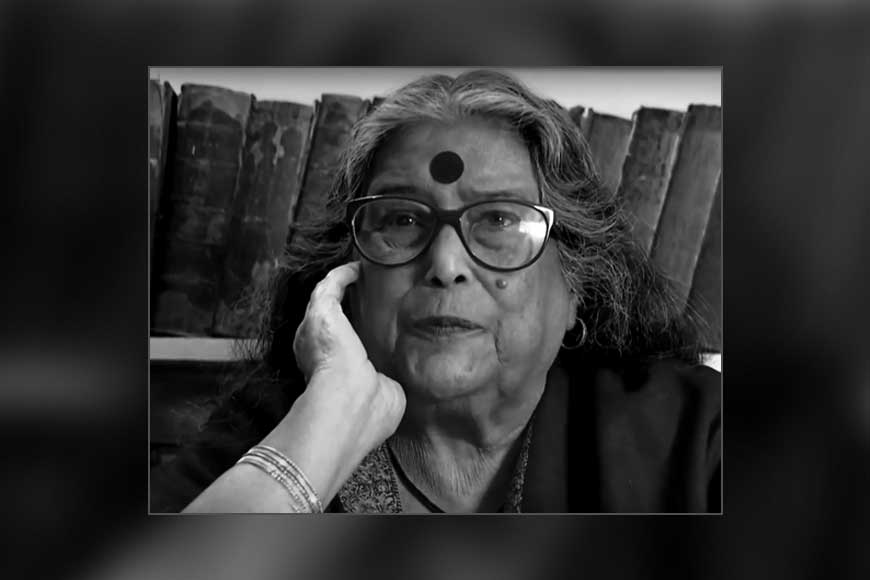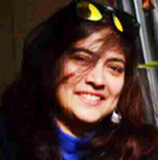‘Nati Nabaneeta’ --- Nabaneeta Dev Sen’s void can never be fulfilled

“We consider ourselves free spirits, but our words remain unfree. Women are late comers to writing and unwelcome ---” that’s what Nabaneeta Dev Sen said in her keynote speech at the National Colloquium of women writers held in Hyderabad. She was a student of Gokhale Memorial Girls High School and even Lady Brabourne College. The same educational institutions I have been to. While in Gokhale, I distinctly remember she had been the chief guest in one of our award ceremonies and spoke with so much humour and in such simple words about her own childhood. I still treasure one of her books that I got as an award that year.
In an era of feminist movement, for Bengali girls like me, Ashapurna Devi’s books were of immense value. And then came Mahsweta Devi. There were indeed a handful of Bengali women authors we grew up with. While in college we got those like Bani Basu, Supriya Bhattacharya and of course Nabaneeta Dev Sen. Sen will always be remembered for her unconventional style laced with intensity and flawless depiction of tales that seemed ordinary, but always had that vignette of extraordinary beneath. Rather they came in layers.
She was literally all in one --- a noted poet, novelist, short story writer, playwright, humorist and travel writer. Her words were free-spirited, her humour was refined. She somewhere understood the dynamics of human relationships well, her writings always spoke of middle- class issues and problems. Born to accomplished literary parents, the poet couple Narendra Dev and Radharani Devi, Nabaneeta, the name she received from none other than the bard, Rabindranath Tagore.
She was also an internationally renowned academician. Professor at the Jadavpur University in Kolkata, the founder secretary of the Indian National Comparative Literature Association, a visiting professor and creative writer in several universities in the United States, including prominent names like Harvard, Cornell, Rutgers, Columbia, Smith College, and Chicago. She has also graced a number of distinguished artists’ colonies all over the globe. An artiste par excellence, her journey, starting with her first collections of poems, Prothom Pratyay, published in 1959 to her critical works, Ami, Anupam (1978), Seeta Theke Shuru (1996), Nati Nabaneeta (1983), NabaNee Nirbachita Rachana Sankalan (1996), Jara Hatke ebong Ananya (2000) has come full circle with myriad milestones of literary accomplishments. These include distinguished international awards, honors and felicitations like the Celli Award from the Rockefeller Foundation in 1993, Sahitya Academy Award in 1999, Padmashri, the fourth highest civilian award in 2000, and the Bharatiya Bhasha Parishad Award.
She had a unique style of self-expression, while she portrayed complicated social, political, psychological problems of the post-colonial, middle-class Bengalis, often using women as central characters. Her literary creations, including Bama-bodhini, Nati Nabanita, and Seeta Theke Shuru reflect an urgency to demonstrate her presence within the parameters of patriarchy. Nabaneeta Dev Sen always tried to construct a world where women can themselves inspire and complement men in all their needs, probably something she did herself in the life of her ex-husband Nobel Laureate Amartya Sen.









